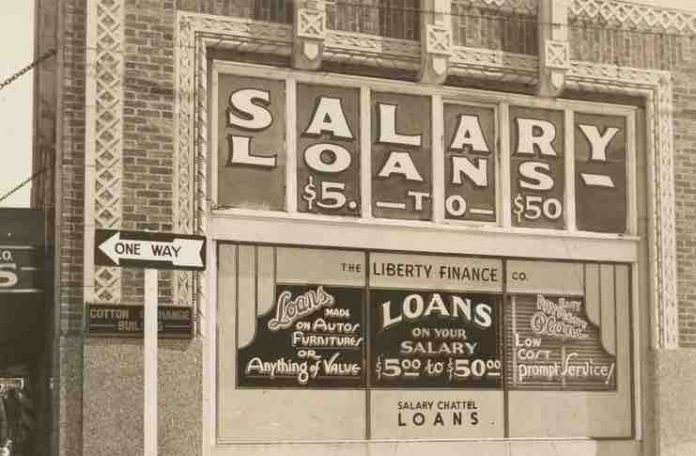
There are many, many types of business loans out there. This can make it quite tricky to figure out what kind of loan your business might need, but pay no mind since we are here to help you understand different types of them. Some of the most common types of business loans and most commonly used are a business line of credit, friends and family loans, SBA loans as well as invoice factoring, and invoice financing. Let’s see what they are all about, as well as their benefits.
4 Types of Business Loans You Should Know of:
1. The business line of credit
One of the most common types of business loans is a business line of credit. This type of loan is used when flexibility is the utmost priority. The sum of money that can be loaned can range anywhere from a couple of thousand dollars to up to half a million dollars, and the money is typically made available in about a week or two. The rates can also vary depending on many factors, one of them being the sum of money, and can go from 8-25%. After a year or two of maturity, the financing will usually come in. To put it simply, this type of loan is revolving.
This means that you can access the money as many times as required rather than receiving a lump sum. There’s no pressure to dip into it, but it’s always present. In addition to this, it’s important to note that you will only pay interest on the exact amount of money you use for whatever purpose be it to expand to a new location, to pay invoices, or to hire staff. Qualifying for this type of loan is quite easy, and you can consider yourself a candidate if you make up the bare minimum of being in business for 6 months with at least $50,000 annual revenue and a credit score of 560 or higher.

2. Friends and family loans
Another common type of business loan is the friends and family loans. While many are familiar with this option, most don’t know that there are specifics that limit when and how you can do it. Firstly, you should consider going through the usual pathway of putting the loan in writing as well as to state a specific interest rate and the repayment plan. If you don’t do this and follow good business practice you run the risk of ruining your relationships. In addition to this, you should always have documentation of the loan’s terms in case the IRS should decide to audit your business.
While it may seem like this type of business loan might be the easiest to obtain, it still carries many risks. The reality is that most people may not have extra money to loan to you, or if they do, they might not be as comfortable with parting with such a large sum. However, on the off chance, they are willing to give you a loan, this might be the best low-interest repayment plan you can ever get. This is why it’s one of the best reasons to borrow money from friends and family, rather than banks.
3. SBA loans (For OFWs in the U.S)
The SBA stands for Small Business Administration, which is a federal organization in the US that is essentially a resource for small business owners. It’s one of the well-known business loans for its big benefits that SBA offers – its government-backed loan program which is very low-cost. It’s important to note that business owners don’t go directly to this organization for loans, but instead, the SBA works with lenders such as nonprofits and banks. A fraction of the loans offered by these lenders are backed by the SBA, which in other words means lower rates and much better terms for borrowers.
The SBA loans are best for growing your business or for expansions, for working capital, debt refinancing as well as for making businesses with a strong borrowing profile. Learn More at Nav about how to compare these financing options since they are partnered with leading lenders, and have a much better understanding of the matter. They might offer a better insight about how to apply, how to qualify, and how to choose the right business loan for your business. Some of the SBA pros are that they offer some of the lowest rates on the market as well as some of the highest sums and long repayment terms.
4. Invoice factoring and invoice financing
If your business has unpaid customer invoices (which are generally paid in 60 days), and you don’t have the cash at the moment, you can still get money for those unpaid invoices through a type of business loan called invoice factoring. The way this works is – you sell the invoices to a factoring company which is then responsible for collecting from the customer when the invoice is due. It’s good because you get fast cash and easy approval than traditional funding options. However, it can be costly, and you ultimately lose control over the collection of your invoices.
Invoice financing is quite similar to invoice factoring, but instead of selling the unpaid invoices to a factoring company, you use them as collateral to get a cash advance. The benefit of this type of business loan is that it also means fast cash, and your customers won’t even know their invoices are being financed. Invoice financing is best for businesses looking to turn unpaid invoices into fast cash, and for businesses that want to maintain control over them. The cons of this type of business loan are that it’s also very costly, and you are still responsible for collecting the invoice payment.
These are some of the most common types of business loans, and all of them come with specific benefits, as well as possible downsides and qualifications. If you’re still unsure about what kind of business loan you need for your business, no matter how big or small it may be, it’s best advised to consult the experts on the matter. This way you won’t make a mistake, and your business will stand a better chance at thriving, and ultimately growing, which is the aim of every company.
Want to read more of our latest posts? Check out our Amazon Seller Tips that can boost your store sales.




